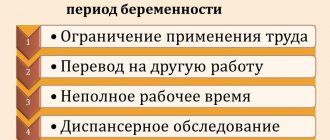Requirements for the profession
An occupational health and safety inspector must be responsible and diligent, including being prepared for various stressful situations (stress resistance is a mandatory inherent quality).
In addition, it is mandatory to have an appropriate specialized education. Having a higher legal education is considered a huge plus.
Labor safety inspector is a highly qualified specialist
The inspector must know:
- norms of the Labor Code of the Russian Federation;
- basics of document management;
- all basic legislative and legal norms without exception;
- labor protection instructions;
- a system of safety standards developed at the federal level;
- features of operation of this or that equipment;
- rules and methods of conducting briefings on the territory of enterprises.
Rights of state labor inspectors
Occupational Health and Safety Specialist
The state labor inspector has the right, in accordance with his job description:
- carry out inspections of any enterprise;
- identify existing violations in the field of labor protection;
- draw up appropriate inspection reports;
- determine the extent of detected violations and the level of responsibility of officials: issue fines, bring to administrative responsibility.
Rights are secured by the norms of the Labor Code of the Russian Federation
In addition, the authorized labor protection inspector (according to the established professional standard):
- takes responsibility for investigating accidents that occur on the territory of the enterprise;
- suspend the operation of the enterprise if gross violations of the current norms of Russian legislation are detected, which entails a threat to the lives of hired personnel.
For your information! What rights state labor inspectors do not have are detailed in Part 2 of Art. 357 Labor Code of the Russian Federation.
Main tasks of the labor inspectorate
Citizens of the Russian Federation when carrying out labor activities have the following rights guaranteed by the Constitution:
- the right to safe working conditions,
- the right to receive material remuneration for one’s work activities,
- the right to monetary compensation in case of accidents at work.
The labor inspectorate is a government agency. Therefore, its main function is to protect the rights and freedoms of working citizens in accordance with the Labor legislation of the Russian Federation.
Does the labor inspectorate check the arrangement of rotational camps for compliance with SNiPs and SanPraviNorms?
Good afternoon. The labor inspectorate is incompetent in these matters. Without fail, the inspector checks: written employment contracts and their availability, internal labor regulations, local regulations and staffing schedules, work books and the correctness of entries, the presence of employee signatures on orders for employment, appointment to another position, etc. .d., work record book and inserts, work on weekends and overtime (relevant orders, consent of workers, agreement with the trade union), work of preferential categories of citizens (disabled, minors, etc.), compliance with labor protection rules, availability provisions on personal data of employees, work with foreign citizens.
Is the labor inspectorate obliged to conduct inspections of enterprises regarding “white” and “black” wages? If obliged, then on what basis?
The labor inspectorate checks the compliance of wages according to the staffing table and actually accrued to the employee in accordance with the Labor Code of the Russian Federation, Article 57.
The manager verbally warned that there would be a reduction in the position I occupy, but did not give notice of the reduction. Is he doing it legally?
The manager is obliged to provide you with notice of the layoff, otherwise it is illegal. Also, this must happen at least 2 months in advance. Lack of notification can also lead to the following factors: compensation of average earnings for the period of forced absence, compensation for unused vacation days.
I am a teacher and took a long vacation. Do I have the right to undergo medical? inspection of specialists together with the team?
Good afternoon. This issue is not regulated at the legislative level. However, the day of the medical examination is a working day. The employer can recall you from vacation, but only with your consent.
Therefore, you can either undergo a medical examination during vacation and at the same time demand from the employer to extend the vacation, or undergo a medical examination immediately after the vacation, but be prepared that, in accordance with Art. 76 of the Labor Code of the Russian Federation, the employer is obliged to remove you from work until you pass a medical examination.
Good afternoon, they offered to train as a labor safety inspector, but it’s not clear to me yet, does a labor inspector work exclusively for a state enterprise?
The position of labor inspector exists only in the Federal Labor Inspectorate.
Hello! I received a response from the inspectorate that the Employer had been issued an order obliging me to pay the final payment. In what time frame must he (the Employer) pay it?
The employer is obliged to comply with the inspector's order within the period specified in the order itself. Failure to comply with the order issued to the employer entails the imposition of an administrative fine.
Can the labor inspectorate consider violations of incentive bonuses?
If you see an employer violating any labor rights, then you have every right to contact the labor inspectorate. If the employment contract does not clearly state incentive bonuses (in which cases the employer is obliged to pay and in which cases he is not), then there is also no reason to contact the inspectorate.
Hello. We worked in a cafe, the cafe was closed, but the organization did not declare itself bankrupt. Salaries have been partially paid. All the employees worked without registration, because they simply did not register us. As it turned out, after the point was closed, there are no documents confirming our work. So what's now?
Find witnesses who are ready to confirm your labor involvement in the activities of the enterprise. If such people are found, the chances of a court decision in your favor increase significantly.
Sorry I can't call right now. The employee’s salary was reduced (reduced to 0.5 times the rate) without prior notice and without even familiarizing himself with the order. Does such a violation fall within the competence of the labor inspectorate? When we contacted the labor inspectorate, we received the answer: “Go to court, we’ll help you file an appeal.”
An employer may reduce wages if it restructures and/or reorganizes enterprises due to changes in organizational or technological working conditions. If the labor inspectorate could not help you, then contact the next authority - the court.
This is important to know: Order of the Ministry of Health and Social Development of Russia 302n dated April 12, 2020 with attachments
Can my employer take away my wages if I am supposed to have 2 wages?
Labor legislation does not define such a concept as “rate”. Based on the meaning usually given to this term, working in a position during normal working hours is considered full-time work. Therefore, providing additional part-time work is voluntary. and a “rate reduction” is not a reduction in the number and/or staff of employees.
Hello! Please tell me whether the head of an educational institution has the right to dismiss an employee at his own request without having a conversation with him, i.e. by signing the application through the secretary?
It is possible to dismiss an employee without a conversation, but the application must be signed directly by the manager himself, and not by the secretary.
Does the labor inspection inspector have the right to invite the complainant to the inspection and ask him to write an additional explanation on the filed complaint, dictating new points not specified in the initial complaint, in particular on the certification of workplaces?
Good afternoon. Perhaps, during the inspection, the inspector noticed some violations regarding the certification of workplaces. But he has no right to force you to add these violations to your explanation of the complaint. You can refuse to write them.
Hello. Can I reschedule my next vacation to an earlier period?
Good afternoon. If the vacation was “built into” the vacation schedule, then a transfer is possible, but in agreement with the employer and the trade union organization.
Hello, I have a question, I’m 6 months pregnant, I’m going on maternity leave in a month, but they found a shortage at work, I don’t refuse to pay it, but my boss gave me 3 days, if I don’t pay it back, I’ll be fired under the article and will be left without maternity leave, is this legal?
Theft can only be confirmed by a court decision or a resolution of an authorized body. If this is just blackmail on the part of management in order to fire you “on their own,” then decide for yourself how much your job and reputation are worth to you.
Hello! Please tell me, can an employer invite an employee who was fired three months ago to conduct an inventory by telegram?
You are not required to participate in the post-employment inventory.
Does the inspection check the legality and validity of removing seniority and harmfulness from an employee after certification of the workplace?
Of course he checks! Why is certification necessary? Firstly, based on the results of the certification, the employer determines working conditions at a specific workplace and develops an action plan to improve them.
Secondly, only based on the results of certification can one say whether an employee has the right to an old-age pension for work with special working conditions, additional leave for work with harmful and (or) dangerous working conditions, reduced working hours, or increased wages by establishing additional payments for work under harmful and (or) dangerous working conditions.
Thirdly, certification establishes the employer’s responsibilities for professional pension insurance of employees.
Can a labor inspector check facts not stated by the applicant?
During inspections, state labor inspectors have the right to request from employers and their representatives and receive from them free of charge documents, explanations, and information necessary to perform control functions (Article 357 of the Labor Code of the Russian Federation).
The legislation does not limit the period that may be covered by an inspection carried out by the labor inspectorate.
Hello, Can the labor inspectorate punish the head of a kindergarten for a forged certificate?
Article 327 of the Criminal Code of the Russian Federation. Forgery, production or sale of counterfeit documents, state awards, stamps, seals, forms entails liability in the form of restriction of freedom for up to two years, or forced labor for up to two years, or arrest for up to six months, or imprisonment for up to six months. up to two years.
You should file a complaint not with the labor inspectorate, but with the prosecutor's office.
Can there be payment according to the plan and register?
Wages are usually paid directly to the employee, except as otherwise provided by applicable law or the employment contract. It is paid to the employee either at the place where the work is performed or transferred to a bank account (Article 136 of the Labor Code of the Russian Federation).
Documents for issuing wages in cash: 1. Payroll for issuing wages (form T-53). This document is intended to reflect salaries paid to employees in cash. The document is drawn up in 1 copy, signed by the head of the company and the chief accountant. Then it is transferred to the cashier. 2. According to the cash receipt order.
Currently, most organizations transfer salaries to employees on cards. When transferring money to a bank card, submit the following documents to the bank:
1. Register for transferring funds to employees. 2. Payment documents
Documents can be prepared both in paper and electronic form.
The register for payment must contain the following information: - a list of employees to whom funds are transferred, - information about the banks in which employees have accounts, - date, number of payment documents, their total number, - amounts for each employee.
Some banks may require additional information to be included in the register. After transferring money to the employees’ accounts, the bank returns one copy of the register to the organization with a mark of execution.
The register and the corresponding account statement indicate that the salary has been credited to the employees’ cards. The total amount of the register must match the total amount of the payment order.
Responsibilities of state labor inspectors
Health and Safety Engineer
The actions of the chief inspector of the labor inspectorate are enshrined in labor legislation.
The legislation of the Russian Federation has established the following responsibilities for them:
- inspection of enterprises in accordance with the established procedure. Inspection is required according to the instructions with the drawing up of an appropriate conclusion;
- if violations are identified, remove the guilty officials from work until the investigation of the situation is completed;
- impose a fine if necessary;
- draw up a protocol;
- investigate injuries or fatalities at work.
The inspector's job description includes comprehensive information about the rights and responsibilities of the specialist.
Job description of a labor safety inspector
Bibliography on occupational health and safety
Appointed state inspectors in the field of labor protection, in accordance with the job description, must:
Each specialist must follow the instructions
- strictly comply with the norms of current federal legislation, including, if necessary, defending the rights and legitimate interests of employers and hired personnel in particular;
- keep a secret (it doesn’t matter which one: state, official, commercial, etc.) that became known during the performance of one’s official duties, including after dismissal from one’s position, since it is considered completely confidential. If the rules are ignored, there is a chance of incurring criminal liability with all the ensuing consequences.
Note! Additionally, it is required to refrain from notifying the direct employer about the applicant’s data if the verification was initiated based on a request or complaint from hired employees of the enterprise.
Main powers of the federal labor inspectorate
Federal state supervision over compliance with labor legislation and other regulatory legal acts containing labor law norms implements the state’s obligation to respect and protect these rights and freedoms. The effectiveness of such protection directly depends on the conditions created in the state for the implementation of supervisory activities, in particular, on legal regulation. Read more about the powers of the federal labor inspectorate in the material presented. According to Part 1 of Art. 353 of the Labor Code of the Russian Federation, federal state supervision over compliance with labor legislation and other regulatory legal acts containing labor law norms is carried out by the federal labor inspectorate in the manner established by the Government of the Russian Federation.
STRUCTURE OF THE FEDERAL LABOR INSPECTION
The Federal Labor Inspectorate is a single centralized system consisting of a federal executive body authorized to conduct federal state supervision over compliance with labor legislation and other regulatory legal acts containing labor law norms, and its territorial bodies (state labor inspectorates).
In the structure of the federal executive authorities of the Russian Federation, the powers to exercise the functions of state supervision and control over compliance with labor legislation and other regulatory legal acts containing labor law norms are assigned to the Federal Service for Labor and Employment (Rostrud) [1].
Rostrud exercises the powers assigned to it directly and through its territorial bodies authorized to carry out state supervision and control over compliance with labor legislation and other regulatory legal acts containing labor law norms - state labor inspectorates in the constituent entities of the Russian Federation[2].
The activities of the federal labor inspection are managed by the head of Rostrud - the chief state labor inspector of the Russian Federation, appointed and dismissed by the Government of the Russian Federation.
Exercising federal supervision over compliance with labor legislation and other regulatory legal acts containing labor law norms is not the only area of activity of Rostrud.
In addition, Rostrud is entrusted with powers in the field of employment, alternative civil service, labor migration and the settlement of collective labor disputes.
A specialized structural unit of Rostrud, created to implement the functions of methodological support for state supervision and control over compliance with labor legislation and other regulatory legal acts containing labor law norms, as well as for organizing the activities of state labor inspectorates, is the Department of Supervision and Control over Compliance with Labor Legislation Federal Service for Labor and Employment , headed by the head of the Department, who is the deputy chief state labor inspector of the Russian Federation.
Reference. As of January 1, 2012, the Federal Service for Labor and Employment administered 82 state labor inspectorates.
BASICS OF THE FEDERAL LABOR INSPECTION
The Federal Labor Inspectorate is guided in its activities by the Constitution of the Russian Federation, federal constitutional laws, federal laws, acts of the President of the Russian Federation and the Government of the Russian Federation, international treaties of the Russian Federation, and regulatory legal acts of the Ministry of Labor of Russia.
In accordance with the provisions of Art. 355 of the Labor Code of the Russian Federation, the main tasks of the federal labor inspectorate are:
1) ensuring compliance and protection of labor rights and freedoms of citizens, including the right to safe working conditions;
2) ensuring compliance by employers with labor legislation and other regulatory legal acts containing labor law standards;
3) providing employers and employees with information on the most effective means and methods of compliance with the provisions of labor legislation and other regulatory legal acts containing labor law norms;
4) bringing to the attention of the relevant government authorities facts of violations, actions (inaction) or abuses that are not subject to labor legislation and other regulatory legal acts containing labor law norms.
Regulatory legal acts defining the legal status and powers of the federal labor inspectorate:
- Labor Code of the Russian Federation;
- Regulations on the Federal Service for Labor and Employment (approved by Decree of the Government of the Russian Federation of June 30, 2004 No. 324, as amended on June 19, 2012);
- Decree of the Government of the Russian Federation dated 04/06/2004 No. 156 “Issues of the Federal Service for Labor and Employment” (as amended on 01/28/2011);
- Model regulations on the territorial body of the Federal Service for Labor and Employment (approved by Order of the Ministry of Health and Social Development of Russia dated July 1, 2009 No. 378n, as amended on August 25, 2010);
- Regulations of the Federal Service for Labor and Employment (approved by Order of Rostrud dated September 11, 2007 No. 211, as amended on May 24, 2010).
Regulatory legal acts regulating the organization and powers of the federal labor inspectorate to exercise federal state supervision over compliance with labor legislation and other regulatory legal acts containing labor law norms:
- Labor Code of the Russian Federation;
- Code of the Russian Federation on Administrative Offences;
- Convention No. 81 of the International Labor Organization “On Labor Inspection in Industry and Commerce” (adopted in Geneva on July 11, 1947, ratified by Federal Law No. 58-FZ of April 11, 1998);
- Federal Law No. 294-FZ dated December 26, 2008 “On the protection of the rights of legal entities and individual entrepreneurs in the exercise of state control (supervision) and municipal control” (as amended on July 28, 2012);
- Federal Law No. 59-FZ dated May 2, 2006 “On the procedure for considering appeals from citizens of the Russian Federation” (as amended on July 27, 2010).
POWERS OF THE FEDERAL LABOR INSPECTION
Based on the assigned tasks, in accordance with the provisions of Art. 356 of the Labor Code of the Russian Federation, the federal labor inspectorate exercises the following main powers:
- carries out state supervision and control over employers' compliance with labor legislation and other regulatory legal acts containing labor law norms, through inspections, surveys, issuing binding orders to eliminate violations, drawing up protocols on administrative offenses within the scope of authority, and preparing other materials (documents) on bringing the perpetrators to justice in accordance with federal laws and other regulatory legal acts of the Russian Federation;
- analyzes the circumstances and causes of identified violations, takes measures to eliminate them and restore the violated labor rights of citizens;
- carries out, in accordance with the legislation of the Russian Federation, the consideration of cases of administrative offenses;
- sends, in the prescribed manner, relevant information to federal executive authorities, executive authorities of constituent entities of the Russian Federation, local government bodies, law enforcement agencies and courts;
- carries out supervision and control over compliance with the established procedure for investigating and recording industrial accidents;
- analyzes the state and causes of industrial injuries and develops proposals for their prevention, takes part in the investigation of industrial accidents or conducts it independently;
- exercises supervision and control over the implementation of workers' rights to receive benefits under compulsory social insurance against accidents at work and occupational diseases, as well as over the appointment, calculation and payment of temporary disability benefits at the expense of employers;
- takes the necessary measures to attract qualified experts in the prescribed manner in order to ensure the application of the provisions of labor legislation and other regulatory legal acts related to the protection of the health and safety of workers during their work, as well as obtain information on the impact of the methods used, materials and methods used on the condition worker health and safety;
- requests from federal executive authorities and their territorial bodies, executive authorities of constituent entities of the Russian Federation, local governments, prosecutors, judicial authorities and other organizations and receives from them free of charge the information necessary to perform the tasks assigned to it;
- provides information and consultation to employers and employees on issues of compliance with labor legislation and other regulatory legal acts containing labor law standards, etc.
According to Art. 216.1 of the Labor Code of the Russian Federation, the Federal Labor Inspectorate is authorized to carry out state examination of working conditions, monitor the results of workplace certification carried out by employers in accordance with the established procedure for working conditions in order to generate objective information about the state of working conditions of workers, including those employed in work with hazardous and ( or) hazardous working conditions[3].
The Federal Labor Inspectorate is given the right to apply restrictive, precautionary and prophylactic measures provided for by the legislation of the Russian Federation, aimed at preventing and (or) eliminating the consequences of violations by legal entities and citizens of mandatory requirements in the established field of activity[4].
The federal labor inspection bodies in the constituent entities of the Russian Federation carry out supervisory measures aimed at ensuring that business entities comply with the requirements of labor legislation in relation to the foreign workers they attract in the prescribed manner, as well as monitoring compliance with restrictions on the use of foreign labor annually established by the Government of the Russian Federation[5] .
[1] Subparagraph “a” of paragraph 4 of Decree of the President of the Russian Federation dated 03/09/2004 No. 314 “On the system and structure of federal executive bodies” (as amended on 06/22/2010).
[2] Regulations on the Federal Service for Labor and Employment (approved by Decree of the Government of the Russian Federation dated June 30, 2004 No. 324, as amended on June 19, 2012), Decree of the Government of the Russian Federation dated April 6, 2004 No. 156 “Issues of the Federal Service for Labor and Employment” (as amended on January 28, 2011).
[3] The procedure for certification of workplaces according to working conditions (approved by Order of the Ministry of Health and Social Development of Russia dated April 26, 2011 No. 342n), Order of the Ministry of Health and Social Development of Russia dated April 1, 2010 No. 205n “On approval of the list of services in the field of labor protection, the provision of which requires accreditation, and Rules for the accreditation of organizations providing services in the field of labor protection" (as amended on November 22, 2011).
[4] Clause 6.5 of the Regulations on the Federal Service for Labor and Employment.
[5] Article 32 of the Federal Law of July 25, 2002 No. 115-FZ “On the legal status of foreign citizens in the Russian Federation” (as amended on July 28, 2012), Decree of the Government of the Russian Federation of November 12, 2010 No. 895 “On determining the need to attract to the Russian Federation of foreign workers and approval of the corresponding quotas for 2011,” Orders of the Ministry of Health and Social Development of Russia dated December 8, 2010 No. 1081n (as amended on December 14, 2011), dated December 8, 2010 No. 1080n (as amended on December 14, 2011).
Conducting an inspection by a state labor protection inspector
In order to organize and implement appropriate supervision at the state level, qualified specialists carry out the following types of inspections:
- unscheduled;
- planned.
The main task of conducting inspections is to identify facts of full compliance with the stated requirements of Russian legislation, fulfill all existing requirements, as well as eliminate violators with further prosecution.
An unscheduled inspection can be initiated on the basis of:
- expiration of the validity period of a previously issued order by specialists of the regional representative office of the labor inspectorate on the need to eliminate identified violations to ensure maximum safety on the territory of the enterprise;
- receiving complaints or other messages about existing violations at a particular employer.
Important! Inspections of this kind can be officially and legally carried out in the shortest possible time, and with notification of other authorized government bodies (for example, the prosecutor's office) in a clearly defined manner, without prior agreement with the direct employer.
Violations will result in fines
The norms of federal legislation categorically prohibit informing the employer about an unscheduled on-site inspection in order to confirm violations of the stated requirements for ensuring labor safety, including ignoring the rights of hired personnel to wages, work and rest hours, etc.
Can a state labor inspector suspend the work of an organization?
In accordance with his job description, each labor inspectorate employee has the right to make an appropriate decision.
Note! As a rule, this becomes a consequence of a gross violation identified, which carries high risks to the health and life of the hired staff in particular.
Appealing decisions of state labor inspectors
If an authorized specialist has drawn up an incorrect protocol on violations, each employer reserves the full legal right to appeal the decision in strict accordance with the norms of labor legislation. To do this you can contact:
- to the chief inspector;
- to the court with a corresponding statement of claim.
Note! Everyone has the right to choose the most optimal option for themselves. But the first appeal method is not relevant if the primary decision was made immediately by the chief specialist. In this case, all that remains is to file a corresponding claim with the court at the place of registration of the enterprise.
A labor safety inspector is a specialist who, first of all, must protect the interests of employed citizens. Anyone who meets the stated requirements has the right to occupy a position. A higher education is required.
Labor inspection - what is it and what does it check?
According to the text of this document, GTI may come in the following cases:
- When applications are received from employees of the enterprise indicating facts of violation by the employer of basic legal acts of labor legislation.
- If there is a complaint from an employee of the enterprise about a violation of his labor rights.
- When a request is received from an employee of an enterprise to check the conditions of the place where he works for compliance with labor safety requirements.
- At the end of the period assigned to the employer to eliminate violations related to the implementation of labor legislation.
This is important to know: Can vacation be less than 14 days (in parts): Labor Code
If an employee believes that his labor rights are being violated by the employer to any extent, he has the right.
This can be done in the following cases:
According to labor laws, wages must be paid twice a month.









